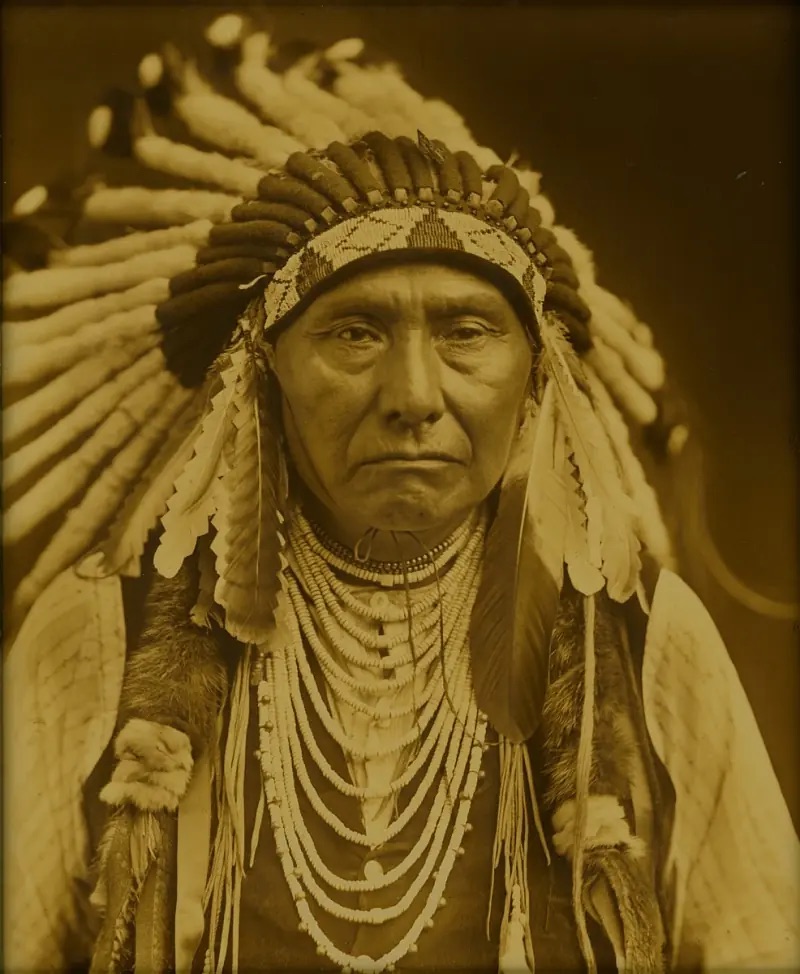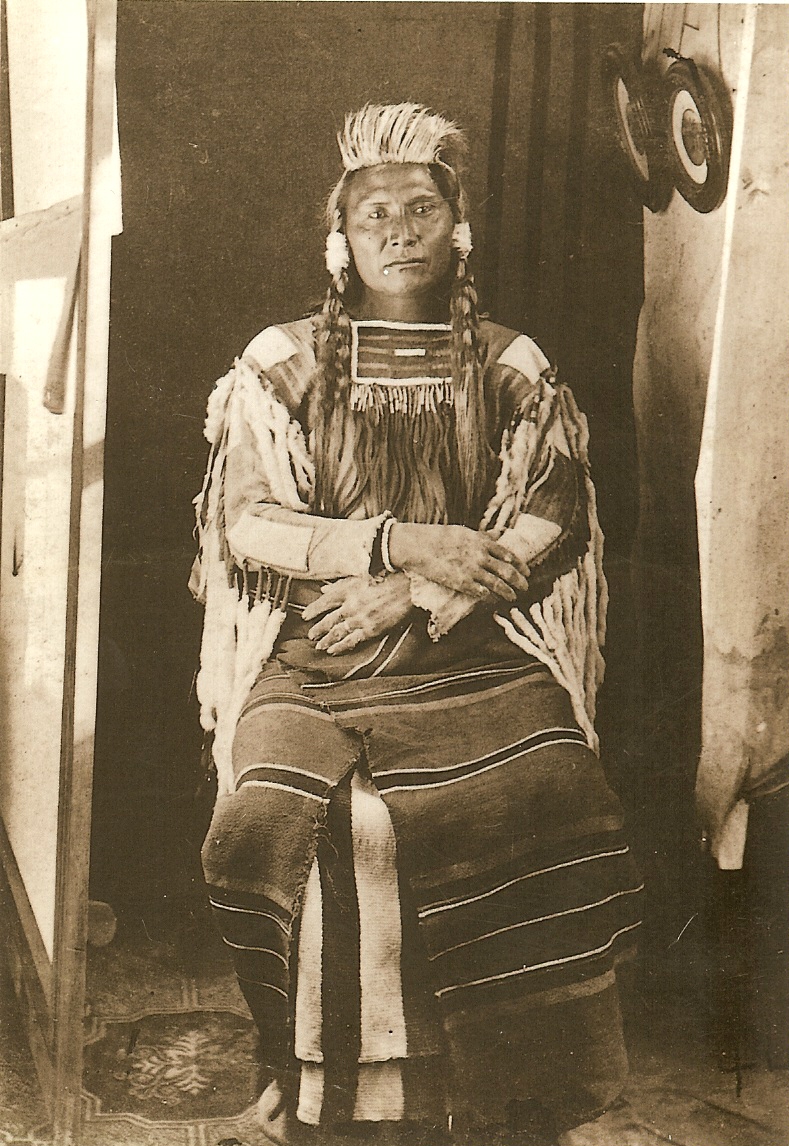Surrender Speech
Chief Joseph (Hin-mah-too-yah-lat-kekt (Thunder Rolling Down the Mountain))
Historical Context
The Nez Perce War of 1877 began when the U.S. government ordered several bands of Nez Perce to move from their traditional lands in Oregon to a reservation in Idaho. The Nez Perce had signed a treaty in 1855 that allowed them to keep much of their homeland, but an 1863 treaty reduced their land by about 90 percent. Many Nez Perce leaders, including Chief Joseph's father, refused to sign the new treaty.
In May 1877, General Oliver Howard gave the non-treaty Nez Perce 30 days to move to the Lapwai Reservation in Idaho. Rather than comply, about 800 Nez Perce began a journey toward Canada, hoping to find refuge there. The group included men, women, children, and elderly people, along with their horses and belongings.
For nearly four months, the Nez Perce traveled over 1,170 miles through Idaho, Wyoming, and Montana. They fought several battles with U.S. Army forces, often winning despite being outnumbered. The military pursuit was led by General Howard and later by Colonel Nelson Miles.
By October 1877, the Nez Perce were exhausted, cold, and hungry. They stopped to rest in the Bear Paw Mountains in Montana, just 40 miles from the Canadian border. On October 1, Colonel Miles attacked their camp. After a four-day siege, with many of their leaders dead and winter approaching, Chief Joseph decided to surrender.

The Speech
Tell General Howard I know his heart. What he told me before, I have in my heart. I am tired of fighting. Our chiefs are killed. Looking Glass is dead. Toohoolhoolzote is dead. The old men are all dead. It is the young men who say yes and no. He who led on the young men is dead. It is cold and we have no blankets. The little children are freezing to death. My people, some of them, have run away to the hills and have no blankets, no food; no one knows where they are—perhaps freezing to death. I want to have time to look for my children and see how many I can find. Maybe I shall find them among the dead. Hear me, my chiefs. I am tired; my heart is sick and sad. From where the sun now stands I will fight no more forever.
Read the Full Speech
Key Quotes
"From where the sun now stands I will fight no more forever."
The famous closing line of Chief Joseph's surrender speech
"I am tired of fighting. Our chiefs are killed."
Joseph's explanation of why the Nez Perce could no longer continue the war
"I want to have time to look for my children and see how many I can find. Maybe I shall find them among the dead."
Joseph's personal anguish about family members separated during the conflict
"Hear me, my chiefs. I am tired; my heart is sick and sad."
Joseph's direct statement of his emotional and physical exhaustion
Analysis & Significance
Chief Joseph's surrender speech is notable for its simple, direct language that clearly states the practical reasons for ending the conflict. The speech focuses on immediate concerns: the death of leaders, the cold weather, lack of supplies, and the suffering of children and elderly people.
The speech lists specific problems facing the Nez Perce. Joseph mentions that their traditional leaders are dead and that young men are now making decisions. He describes the lack of blankets and food, and his worry about people who scattered into the hills. He expresses his personal exhaustion and sadness about the situation.
The speech's most famous line, "From where the sun now stands I will fight no more forever," uses a simple image that anyone could understand. The phrase connects the moment of surrender to the natural world, which was important in Nez Perce culture.
The speech was delivered through interpreters, so the exact English words may not match exactly what Joseph said in his native language. However, the basic message and tone appear to reflect his actual surrender statement.
Joseph's decision to surrender was practical rather than idealistic. His people were suffering, winter was coming, and continuing to fight would likely result in more deaths. The speech reflects this practical assessment of their situation.
Enduring Legacy
Chief Joseph's surrender speech became widely known in American culture, particularly the final line about fighting no more forever. The speech was published in newspapers and later included in history books and anthologies.
The speech contributed to Joseph's reputation as a spokesman for Native American rights. After the surrender, he gave speeches in Eastern cities arguing for his people's right to return to their homeland. He met with government officials and spoke to audiences about the treatment of Native Americans.
The Nez Perce were not allowed to return to their Pacific Northwest homeland as promised. Instead, they were sent to a reservation in Kansas and later to Oklahoma, where many died from disease and poor conditions. In 1885, some Nez Perce were allowed to return to the Lapwai Reservation in Idaho, but Joseph and others were sent to the Colville Reservation in Washington, where he died in 1904.
The speech has been quoted in discussions about the treatment of Native Americans and the history of the American West. It appears in museums, documentaries, and educational materials about the Indian Wars period.
The story of the Nez Perce War and Joseph's surrender speech is taught in American schools as part of the history of westward expansion and Native American resistance. The speech serves as a primary source document for understanding this period of American history.

About the Speaker
Chief Joseph was born around 1840 in the Wallowa Valley of Oregon. His Nez Perce name was Hin-mah-too-yah-lat-kekt, which means "Thunder Rolling Down the Mountain." He was the son of a chief who was also called Joseph by white settlers. His father had converted to Christianity and maintained peaceful relations with white settlers for many years.
When his father died in 1871, Joseph became chief of the Wallowa band of Nez Perce. He was known for his diplomatic skills and his efforts to avoid conflict with the U.S. government. He tried to negotiate with officials to keep his people's land in the Wallowa Valley.
Joseph was not a war chief and did not make military decisions during the 1877 conflict. The war leaders were chiefs like Looking Glass and Lean Elk. However, Joseph was responsible for protecting the women, children, and elderly during the long retreat toward Canada. After the surrender, he became the most well-known spokesperson for his people and spent the rest of his life trying to secure their return to their homeland.
View all speeches by Chief Joseph